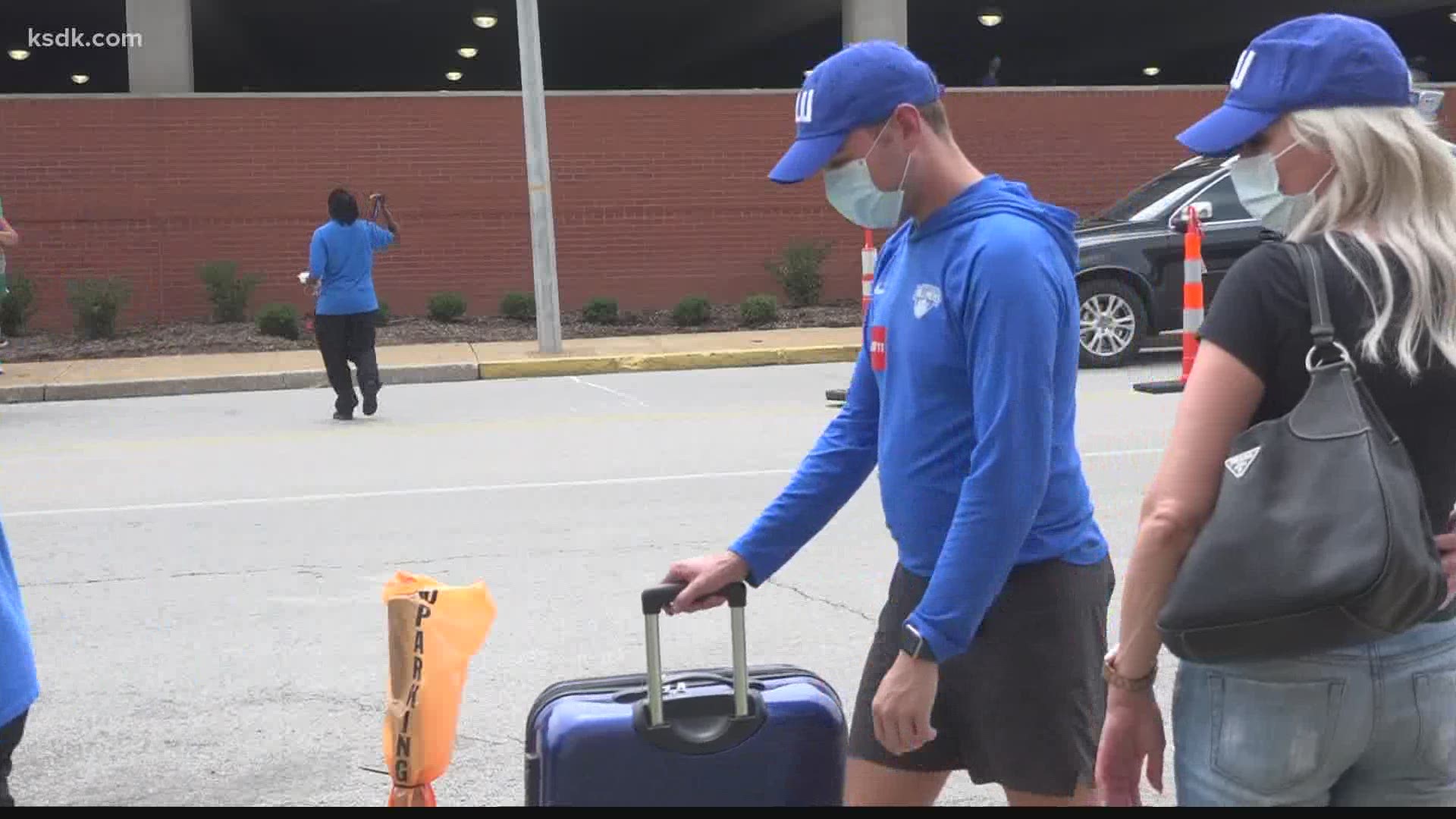ST. LOUIS — (AP) — With thousands of students returning to college this week, St. Louis is tightening restrictions for many places where they might socialize in an effort to slow the spread of the coronavirus.
St. Louis Mayor Lyda Krewson and acting city Health Director Dr. Fredrick Echols issued a new health order Wednesday that lowers the capacity for bars, restaurants and nightclubs that sell alcohol from 75% to 50%. The order also imposes an 11 p.m. curfew for bars and restaurants.
Krewson said during a news conference that 51% of the city's new cases in the last week involved people in their 20s and 30s, and those numbers are expected to increase as students return.
“All of that combined has said to us that we really cannot keep these numbers going up in 20- and 30-year-olds,” said Krewson. She said the city had hoped to avoid tightening the rules.
RELATED: Restaurants, bars and businesses: What’s changing with St. Louis’ new COVID-19 restrictions
Large venues, such as museums, event spaces and theaters, also must not exceed 50% capacity under the new order, which takes effect Thursday and lasts through at least Sept. 7.
Confirmed cases continue to increase across Missouri, with 1,595 new cases reported Wednesday bringing the state's total to 62,530. The state reported 11 new deaths, for t total of 1,323. The true numbers are believed to be much higher because people can have the virus without feeling ill and because of a lack of testing, particularly early in the pandemic.
About 85% of the 1,575 freshmen are expected to move into dorms at St. Louis University this week before classes — many of them remote — begin Monday. The university will give students rapid COVID-19 tests and those who test positive will stay in isolation rooms.
“We have some protocols,” said President Fred Pestello. “We’re not going to be able to shake hands and hug each other (but) overwhelmingly we heard from our student body that they want to be in community with each other.”
Students moving back to campus at the University of Missouri this week are being asked to avoid back-to-school parties, and crowded bars and restaurants to curb the spread of the coronavirus.
Columbia Mayor Brian Treece, along with university and city officials, on Tuesday warned that unsafe gatherings could force the school to revert to remote learning. He asked city residents to cooperate with efforts to reduce exposure to the virus, saying removing the option for in-person learning would also hurt the city's economy, The Columbia Daily Tribune reported.
“None of us are in this alone,” Treece said. “Our individual actions affect the lives of everyone.”
Stephanie Browning, director of the Columbia/Boone County health department, said COVID-19 cases in Columbia would inevitably rise as students return but that "we do have some control here.”
Mun Choi, president of the University of Missouri system and chancellor of the university, said they were reopening during “probably the most challenging period that we’ve faced in 75 years,” since the end of World War II.
“Our actions or lack of actions can have an impact on our community,” he said.
Bethany Riley, 18, of Wildwood, will on Sunday move into Drury University in Springfield, where all rooms are single occupancy this year. She said she’s nervous about being exposed to the virus, but feels confident in the university’s plans to prevent its spread, The St. Louis Post-Dispatch reported.
“I’m here to learn,” she said. “Going to college is a way to start my own life and get on my own path.”
Southeast Missouri State University in Cape Girardeau will hand out 10,000 kits containing two face coverings, a 1-fluid-ounce vial of hand sanitizer and a card detailing best practices for staying safe to students, faculty and staff before in-person classes begin Aug. 24, The Southeast Missourian reported.

